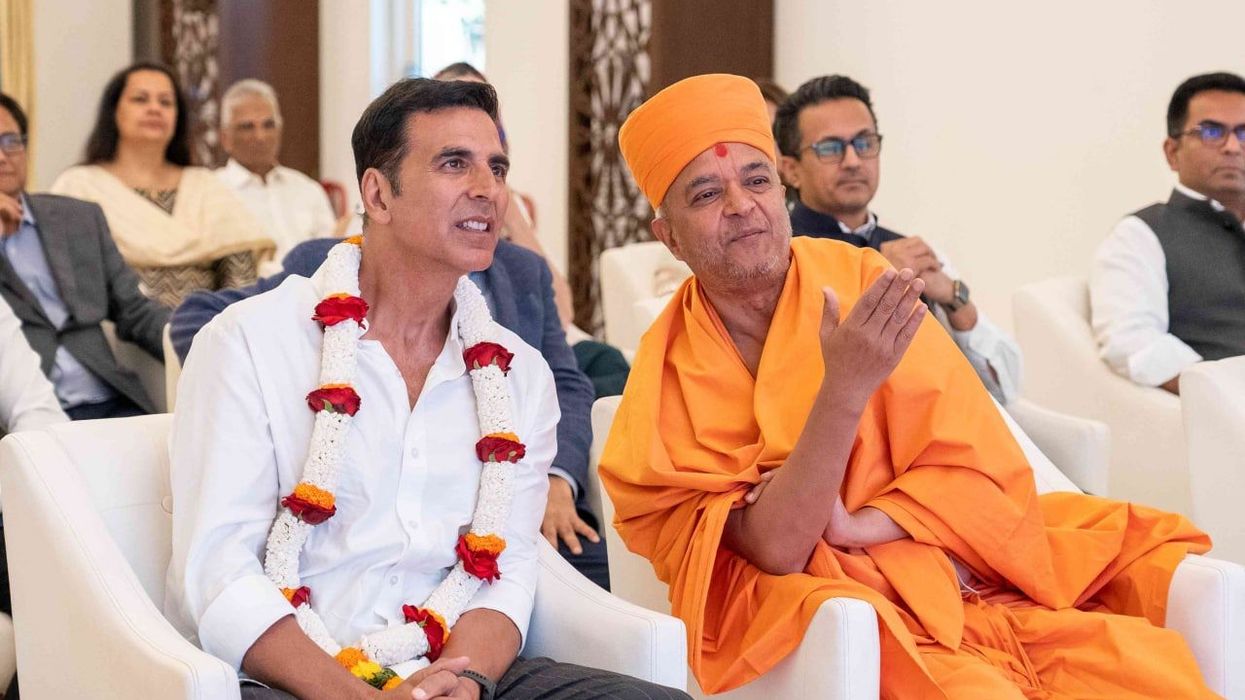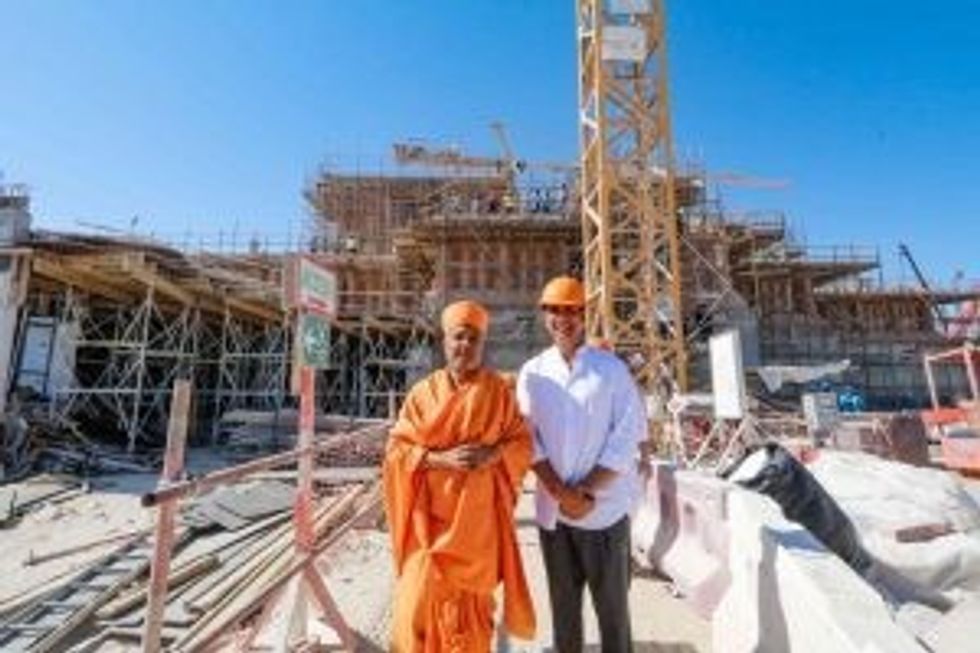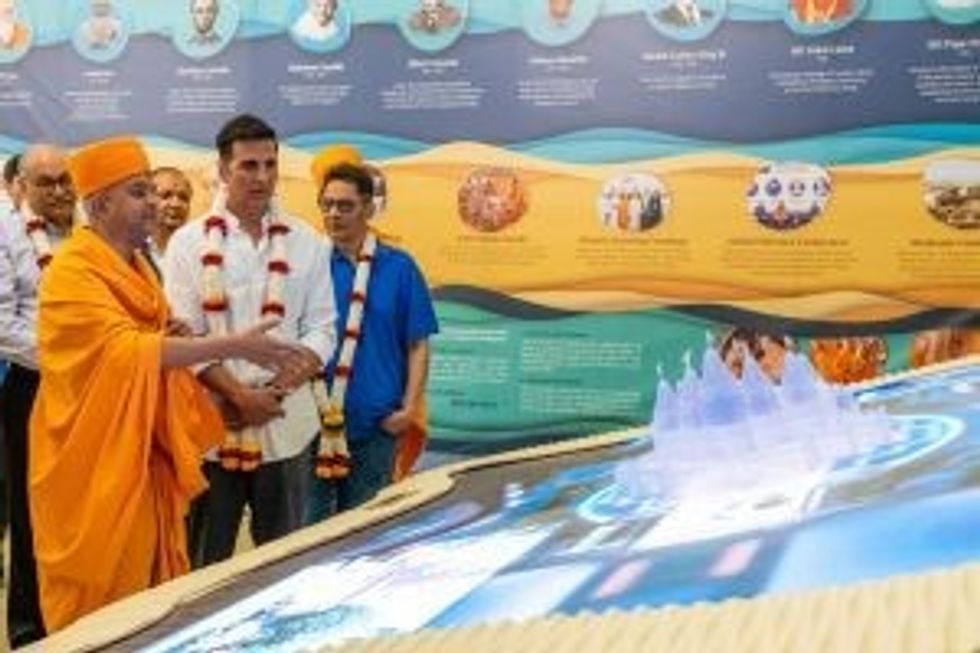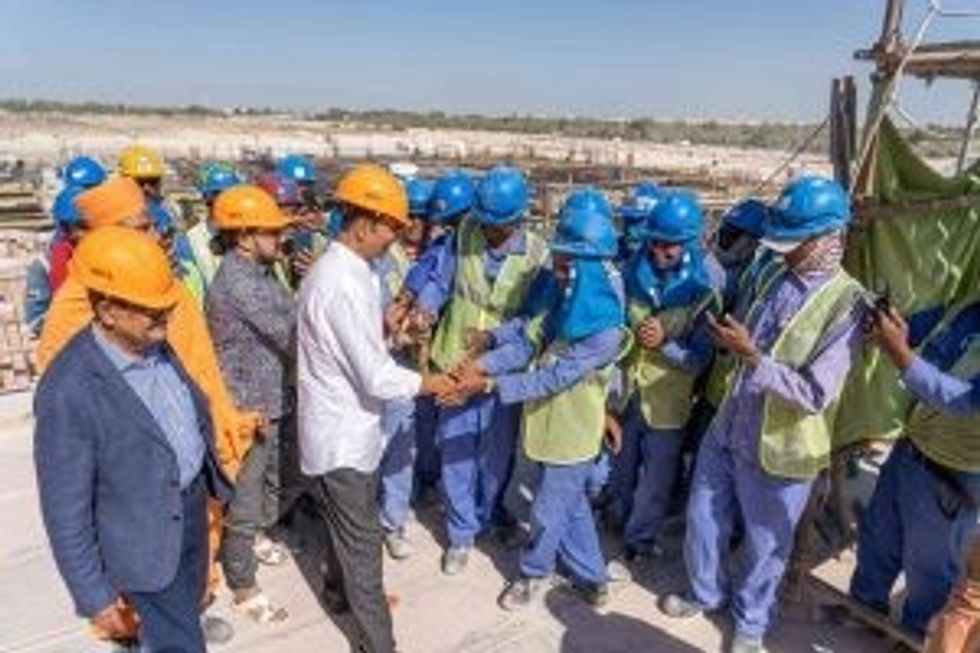Bollywood superstar Akshay Kumar, Indian film producer Vashu Bhagnani, and businessman Jiten Doshi recently visited the site of the BAPS Hindu Mandir in Abu Dhabi. The group was greeted by Swami Brahmaviharidas, the head of BAPS Hindu Mandir, who garlanded them with flowers, a press release informed.
As they were eager to learn more about the Mandir's history, they were led to the Rivers of Harmony exhibition, which offers a fascinating glimpse into the Mandir's origins.
The Mandir was envisioned through a prayer for harmony and peace by His Holiness Pramukh Swami Maharaj in 1997. Fast forward three decades and the Mandir stands as a testament to the power of that prayer and an answer to the universal prayer of millions for a more harmonious world. The Mandir is scheduled to open in February of 2024.
After exploring the exhibition, Akshay Kumar and the delegation joined a gathering of the Mandir's board of directors and key volunteers.
Swami Brahmaviharidas captivated the audience with his speech, sharing the almost magical history of the project's conception and development. He referred to the project as "scripted in heaven and is now being screen played here on earth”.
The delegation then participated in a puja ceremony to place their own brick in the construction of the Mandir, joining more than 40,000 people who have already placed their bricks to help in the construction of the Mandir.
They were then led on a tour of the Mandir by Swami Brahmaviharidas, exploring the design and architecture crafted entirely from pink Rajasthani stones and Italian marble, with not a single trace of steel.
As the delegation made their way around the Mandir, Swami Brahmaviharidas led them to the location where 14 international value tales from ancient civilizations will be carved, a unique feature not found in any other Mandir around the world.
Kumar expressed his gratitude to the volunteers and contributors, thanking them for their tireless efforts in bringing this project to life.
The BAPS Hindu Mandir is not just a testament to the power of human possibility but more importantly, it is a testament to tolerance, love, and peace, and a symbol of hope for a brighter, more harmonious future.
Both Akshay Kumar and Brahmavihari Swami shared deep gratitude for the generosity and vision of HH Sheikh Mohamed Bin Zayed Al Nahyan, the President of the United Arab Emirates, and the continuous support of Narendra Modi, in making this spiritual oasis of global harmony a reality in the United Arab Emirates.







